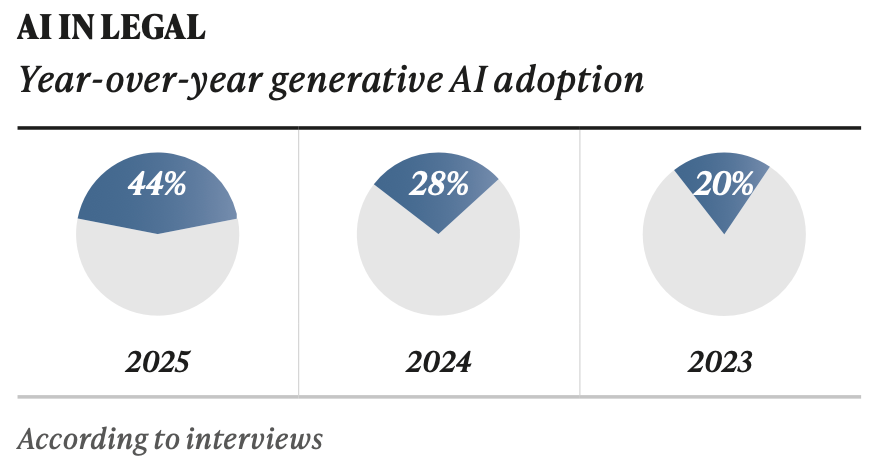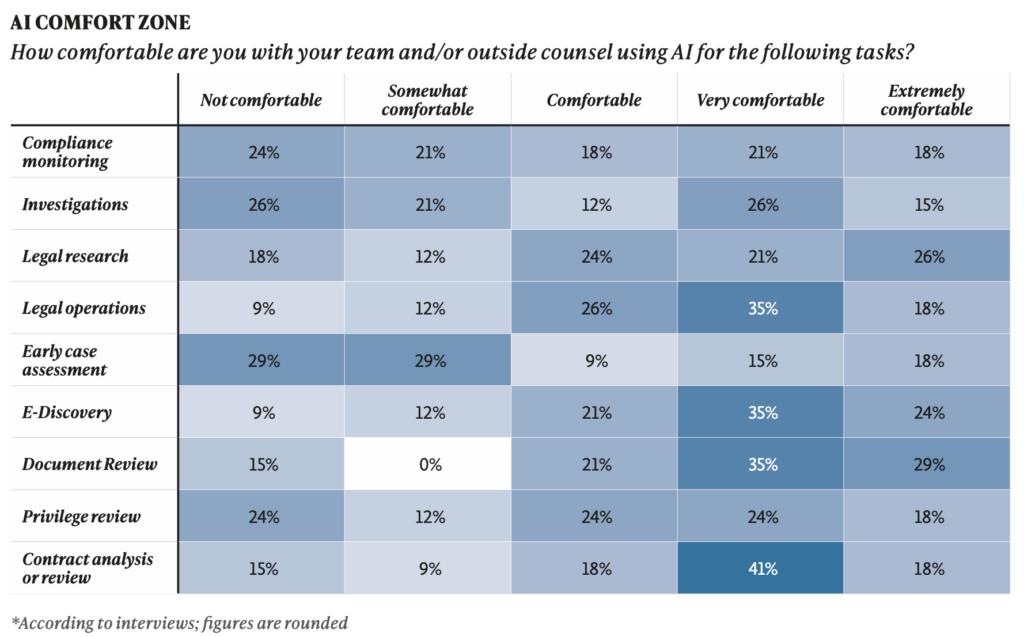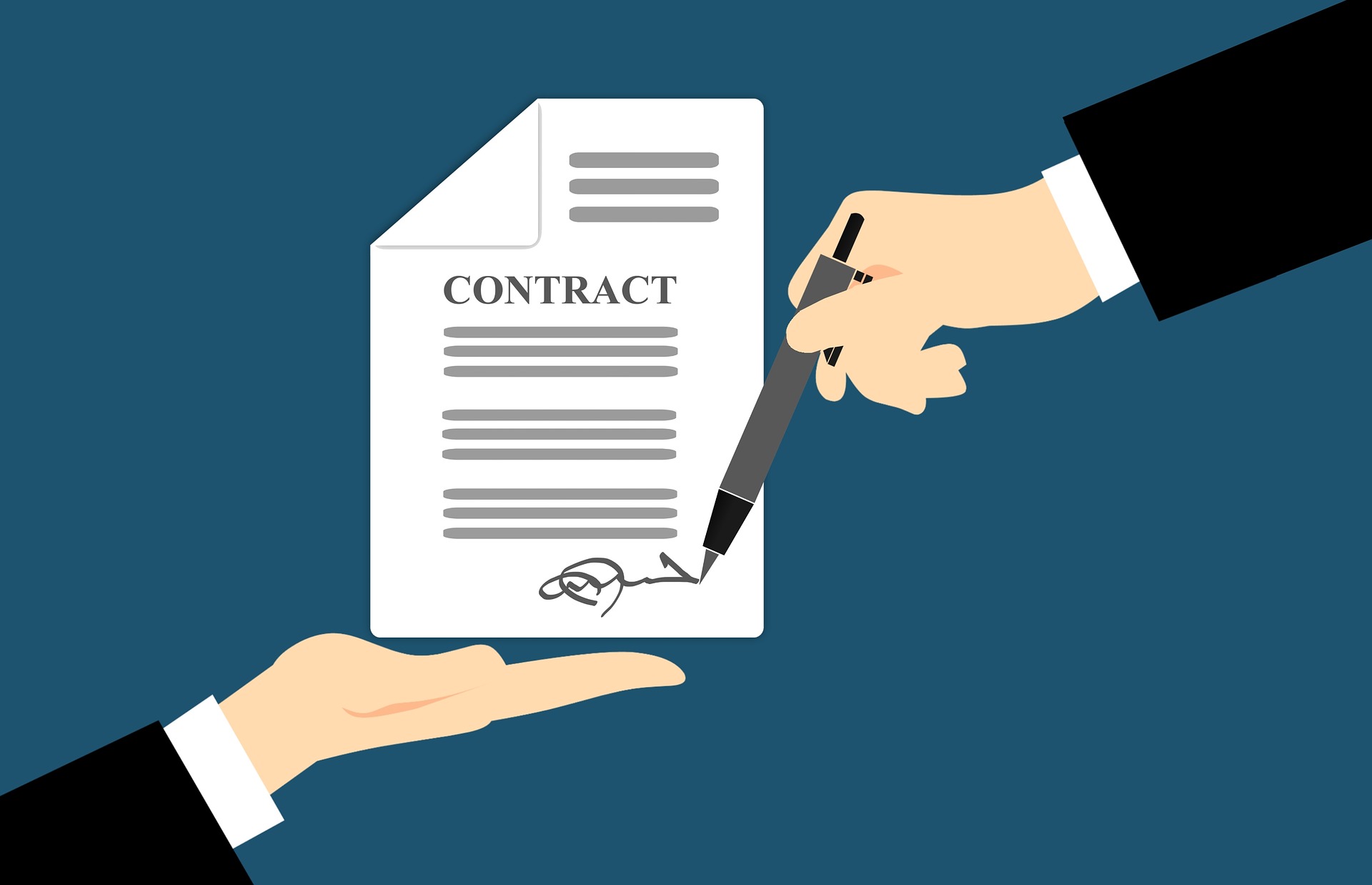Legalweek 2025: How General Counsel Learned To Stop Worrying And Love The Bot
The Legalweek conversation around AI matured -- and the GC Report offers a hint as to why. The post Legalweek 2025: How General Counsel Learned To Stop Worrying And Love The Bot appeared first on Above the Law.


For the last couple years, legal tech shows mostly involve vendors explaining how they’ve “slapped some AI on” their products and vaguely promising that some future iteration of AI will arrive to assist every step of the attorney workflow. But great leaps in generative AI capabilities seems unlikely to arrive, being that the most exciting AI development of the last several months wasn’t an advancement but rather DeepSeek unveiling TemuGPT for a fraction of the cost.
However, this doesn’t make generative AI any less revolutionary. As a user experience enhancement, it can’t be beat. Lawyers who used to shun technology are now routinely interacting with it through plain language conversations. Beyond its value as an intermediary, there are several points along the lawyer workflow — even if it’s not every point along the workflow — that AI can exponentially enhance.
For whatever reason, this year’s Legalweek felt like a turning point in the generative AI conversation. Over the last few years, vendor pitches tended to focus on the promise of AI-to-come. This time around, most of the pitches focused on grounded, specific use cases.
It reminded me of a Netdocuments anecdote from late last year, where they zeroed in on Boies Schiller using the product to rapidly catch the team up on an inherited case with a looming hearing, as well as a session from RelativityFest where a user compared cost and accuracy figures for a first pass review. You interrogate discovery material differently when making rapid assessments for a scheduling hearing than when you’re drafting a summary judgment motion. In a conversation with DISCO last week about its AI tool and the value it can provide in making quick assessments to get a step ahead in strategy at the outset of a matter — having a sense of the risks as early as possible in the case matters. In both of these examples, the emphasis was on painting a picture of a real moment familiar to a practitioner and making the value proposition there.
This might seem like a small shift, but it hits differently than “we’re investing in AI which will soon do everything for you.”
And clients might be noticing this.
Last week, the second installment of The General Counsel Report 2025 dropped. Produced by FTI Consulting and Relativity based on interviews conducted by Ari Kaplan Advisors and surveys by Censuswide, this edition focused on AI adoption from the in-house perspective. And in-house legal departments are getting very comfortable with it.

Of course in-house has one of the best use case stories. Especially on the legal operations side where legal can position themselves as a revenue enhancer as opposed to a cost sink. Turning contracts and getting deals done faster matters.
But with more comfort on their own side of the house, comes increased faith in outside counsel’s use of AI:

Bizarrely, one of the few cases in this survey where in-house lawyers aren’t “comfortable” or better is early case assessment, which would strike me as one of the most compelling AI stories. That’s where the bots are more likely to find — CHEAPLY — the smoking gun buried in your own documents and figure out that it’s time to settle before the bills pile up. How many matters drag on for weeks before someone stumbles upon the rogue employee that screwed everything up with one email? That’s something AI has a high probability of sussing out within a day.
But it’s queries like this from the GC Report that show the shift in thinking. Here’s a question asking about narrow and specific cases. This is the information that’s informing vendor pitches and when they’re seeing client comfort distributed differently by use case, they’re adapting to that.
A peer shared, “Our law firms are permitted to use AI tools but cannot bill the firm for that work alone. I want them to do work we cannot do in house. I would quickly lose faith in outside counsel if they replaced some of their thought with AI results alone. E-discovery, document review, and legal operations are excellent use cases for AI.”
There again is the heightened interest in uses. This is the rhetoric that seemed to trickle down to the providers this year
Which sparks a virtuous cycle, because clients had every reason to be worried about one-size-fits-all AI. If an AI product can do “everything,” will outside counsel start feeding it material that the client wouldn’t want in there? Will firms trust the technology with tasks the client isn’t on board with? Can the client even police the day-to-day use of such a broad AI?
This shift to “low-risk, high-reward” use cases is working because it de-escalates the fear and replaces it with manageable curiosity. Contract redlining? Sure. E-discovery grunt work? Love it. Summarizing 300 emails from Bob in Procurement into a single bullet point? Inject it into my veins.
All this might be less exciting to the investors who thrive on the idea that generative AI amounts to the “magic beans” that will soon replace humans with Roomba attorneys to the benefit of their insatiable quest for wealth, but it’s going to make the technology a lot easier to swallow for lawyers.
Majority of General Counsel Indicate Openness to Using AI in Nearly Every Major Legal Use Case, According to The General Counsel Report [FTI Consulting]
Earlier: New GC Report Details All The In-House Concerns That Ceased To Matter Around, Say, Inauguration Day
The post Legalweek 2025: How General Counsel Learned To Stop Worrying And Love The Bot appeared first on Above the Law.










































































































































































.jpg)









